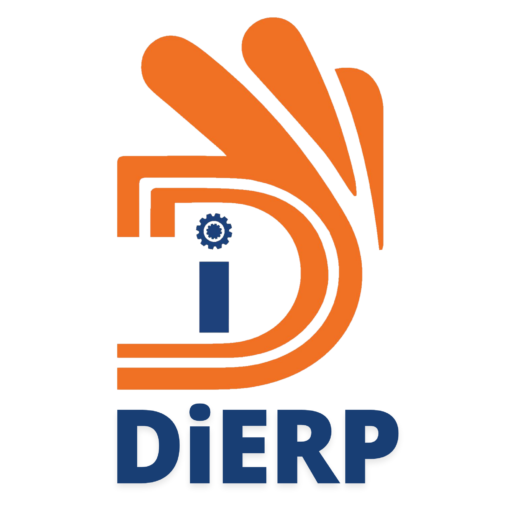You are not dreaming!
Monthly
Premium
$199
US$ 0.0
1 / month
Best for teams with around 50 employees
- User x 50 Emolovee
- Storage × 30GB
- Server Load Balancing
- Training Package: 24h
- Cover 1 Group Unlimited
- Multiple Companies and Branches
- Data backup 1 time/day
- Subdomain: dierp.app
- Mobile Application
Standard
$35
US$ 0.0
1 / month
- User x 30 Emplovee .Storage × 20GB
- Cover I Company & 2 Branch
- Mobile application
- Training Package: 16h
- Subdomain: dierp.app
Custom
- Unlimited Users
- Managed Hosting
- Product Warranty
- Account Manager
- Priority SLA
- Phone Support
- Large DB Support
Premium
$2388
US$ 0.0
Best for teams with around 50 employees
- User x 50 Emolovee
- Storage × 30GB
- Server Load Balancing
- Training Package: 24h
- Cover 1 Group Unlimited
- Multiple Companies and Branches
- Data backup 1 time/day
- Subdomain: dierp.app
- Mobile Application
Standard
$420
US$ 0.0
- User x 30 Emplovee .Storage × 20GB
- Cover I Company & 2 Branch
- Mobile application
- Training Package: 16h
- Subdomain: dierp.app
Custom
- Unlimited Users
- Managed Hosting
- Product Warranty
- Account Manager
- Priority SLA
- Phone Support
- Large DB Support
The Standard and Custom plans include all apps for a single fee:
Any Questions
Here are some custom questions and answers about common modules in an ERP system :
The Accounting module in an ERP system integrates all financial data and automates key processes, making it easier for businesses to manage their finances. It helps in:
- General Ledger Management: Tracks and consolidates all financial transactions into a central ledger.
- Accounts Payable/Receivable: Automates invoice generation, payment reminders, and receipt tracking, reducing the risk of late payments and errors.
- Financial Reporting: Provides real-time access to financial statements such as balance sheets, income statements, and cash flow reports, helping managers make informed decisions.
- Tax Compliance: Facilitates automatic tax calculations, helping businesses stay compliant with tax laws and regulations.
- Bank Reconciliation: Streamlines the reconciliation of bank statements with internal records to ensure financial accuracy.
The CRM module in an ERP system helps manage and improve customer interactions, boosting satisfaction and driving sales. Key benefits include:
- Customer Data Centralization: All customer information (contact details, purchase history, preferences) is stored in a single, accessible location.
- Sales Pipeline Management: Tracks leads, opportunities, and sales progress in real-time, helping sales teams prioritize and follow up effectively.
- Personalized Communication: Enables businesses to send tailored emails or offers based on customer behaviour and preferences, enhancing customer engagement.
- Customer Support Tracking: Monitors customer queries and complaints, ensuring timely resolution and improved service quality.
- Analytics and Reporting: Provides insights into sales performance, customer trends, and satisfaction levels, aiding in strategic decision-making.
The Stock module in an ERP system helps streamline inventory management by providing real-time visibility, reducing stockouts, and minimizing excess inventory. Key features include:
- Real-Time Inventory Tracking: Keeps track of stock levels in real-time across multiple locations and warehouses.
- Automated Replenishment: Uses sales trends and minimum stock levels to automatically generate purchase orders when inventory reaches predefined thresholds.
- Barcode Scanning: Facilitates easy tracking and updating of stock levels using barcode scanners, reducing errors and improving stocktaking efficiency.
- Stock Movement Monitoring: Tracks inventory movements (inbound/outbound) and provides reports on stock turnover rates, ensuring optimal inventory levels.
- Multi-Warehouse Support: Manages stock across multiple locations, providing insights into stock distribution and improving supply chain coordination.
The Quality module in an ERP system helps monitor and maintain product quality standards throughout the production and supply chain. Key benefits include:
- Quality Control Checks: Allows businesses to set up standard operating procedures for product inspections, ensuring that every item meets quality standards.
- Testing and Inspection Management: Records and tracks product test results, including materials inspections, batch testing, and final product quality checks.
- Non-Conformance Management: Identifies, tracks, and manages quality issues or defects, helping businesses address and resolve them quickly to prevent future occurrences.
- Supplier Quality Management: Assesses and tracks the quality of raw materials or components from suppliers to ensure they meet the required standards before they enter production.
- Compliance Reporting: Helps organizations stay compliant with industry regulations by generating reports related to quality audits, product safety, and certifications.
